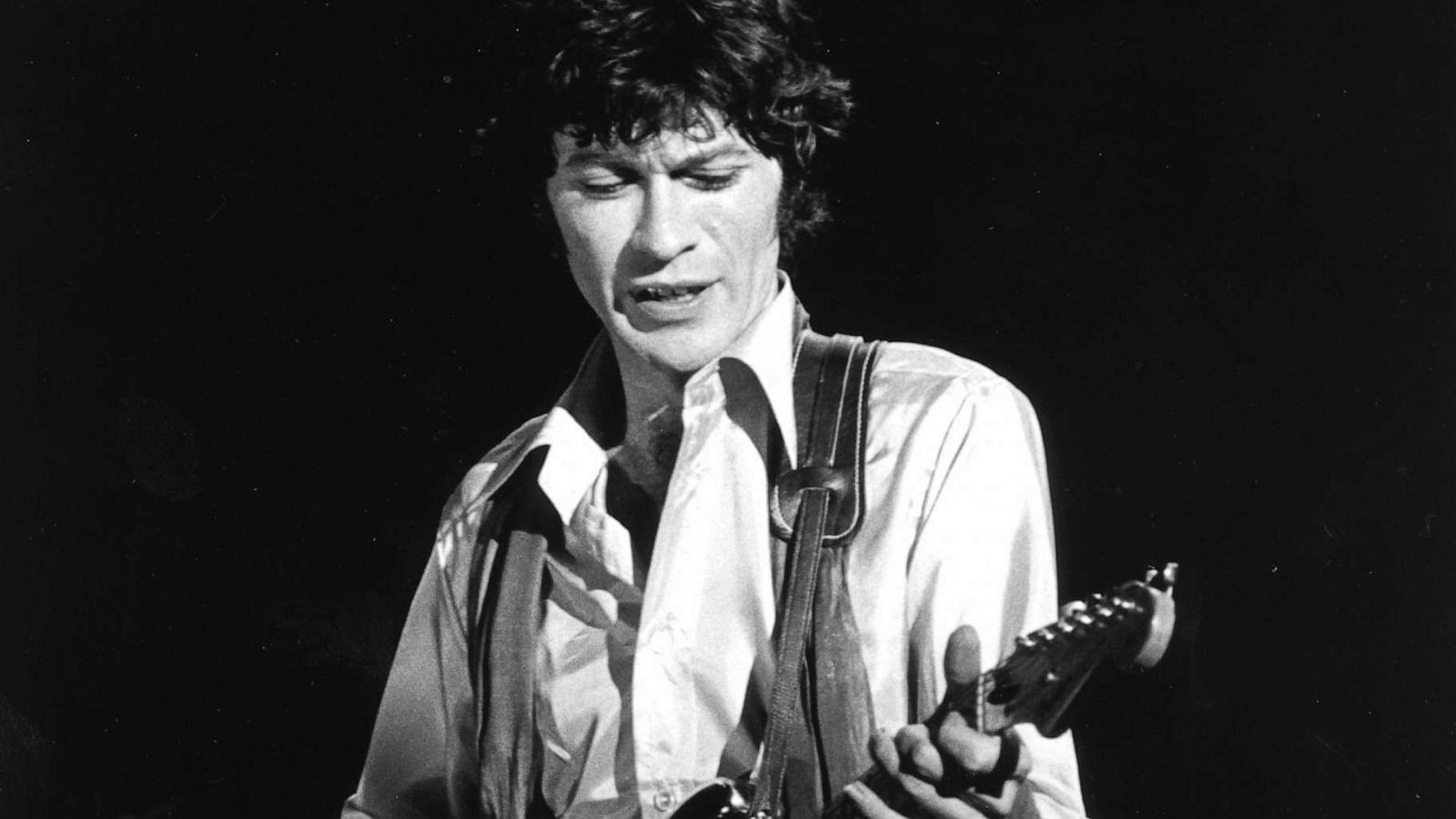Post by rootyrootz on Sept 13, 2023 23:29:41 GMT

Jaime Royal "Robbie" Robertson (July 5, 1943 – August 9, 2023)
Voice type: Baritone
Vocal range: G1 - C5 - D5 (3 octaves + 7 semitones)
Associated acts: The Hawks (1960 - 1965), Bob Dylan (1966 - 1967, 1973 - 1974, 1976), The Band (1967 - 1976, 1994), The Red Road Ensemble (1994)
Significant High Notes:
D5: “Broken Arrow”, “Hold Back the Dawn”, “Sonny Got Caught in the Moonlight”
C♯5: “Sonny Got Caught in the Moonlight”
C5: “Fallen Angel”, “Go Back to Your Woods”, “Resurrection”, “Showdown At Big Sky”, “Sign of the Rainbow”, “Somewhere Down the Crazy River”, “Sweet Fire of Love”, "Testimony"
B4: “Hell’s Half Acre”, “Hold Back the Dawn”, “Long Black Veil” Woodstock 1969, "Making a Noise", “The Shadow”, “Shake This Town”, “Soap Box Preacher”, “To Kingdom Come”, “What About Now”, "You Don't Come Through"
B♭4: “Fallen Angel”, “Sign of the Rainbow”, “Stomp Dance”, "Testimony", “When the Night Was Young”
A4: “Fear of Falling”, “Knockin’ Lost John”, “Loving You Is Sweeter Than Ever” Woodstock 1969, “Mad Waltz”, “Out of the Blue”, “Slippin and Slidin”, “The Sound Is Fading”, “Sweet Fire of Love”
G♯4: “Breakin’ the Rules”, “I Shall Be Released” Woodstock 1969, “The Lights”, “To Kingdom Come”, “What About Now”, “Words of Fire, Deeds of Blood”, "You Don't Come Through"
G4: “Ain’t No More Cane On the Brazos”, “Broken Arrow”, “The Code of Handsome Lake”, “Houdini", “Night Parade”, “Out of the Blue”, “Skinwalker”, "Somewhere Down the Crazy River", “The Sound Is Fading”, “The Weight” Woodstock 1969
F♯4: "Go Go Liza Jane" Oklahoma City 1965, “Knockin’ Lost John”, “The Lights”, “Shake This Town”, “Somewhere Down the Crazy River”
F4: “American Roulette”, "Axman", “The Last Waltz Refrain”, “Let Love Reign”, “Night Parade”, “Rockin Pneumonia & The Boogie Woogie Flu” Calgary Hotel 1970, “Sonny Got Caught in the Moonlight”, ”Stomp Dance”, "Street Serenade", "Testimony", “This Is Where I Get Off”
E4: “Ain’t No More Cane On the Brazos”, “All Our Past Times” The Last Waltz, “Breakin’ the Rules”, “Broken Arrow”, “Day of Reckoning (Burnin’ For You)”, “Fear of Falling”, “He Don’t Live Here No More”, “Hell’s Half Acre”, “Hold Back the Dawn”, "Making a Noise", "Out of the Blue", “Resurrection”, “The Shadow”, “Showdown At Big Sky”, “Slippin and Slidin”, “Straight Down the Line”, “This Is Where I Get Off”, “What About Now”, “When the Night Was Young”
E♭4: “Day of Reckoning (Burnin’ For You)”, “Dead End Kid”, “Fallen Angel”, “Get Up Jake” Calgary Hotel 1970, “Go Back to Your Woods”, “Hardwired”, “How to Become Clairvoyant”, “Let Love Reign”, “Once Were Brothers”, “Praying for Rain”, “Shake This Town”, “Sign of the Rainbow”, “Skinwalker”, “The W.S. Walcott Medicine Show” Calgary Hotel 1970
Significant Low Notes:
C3: “Bessie Smith”, “Go Back to Your Woods”, “Golden Feather”, “Hardwired”, “Mad Waltz”, “Night Parade”, "Out of the Blue", “Praying for Rain”, “Resurrection”, "Sign of the Rainbow"
B2: "Breakin' the Rules", “Broken Arrow”, “Hell’s Half Acre”, “I Hear You Paint Houses”, “In the Blood”, “Rattlebone”, “The Right Mistake”, “What About Now”, “Won’t Be Back”
B♭2: “Axman”, “The Code of Handsome Lake”, "Ghost Dance", “Golden Feather”, “How to Become Clairvoyant”, “Resurrection”, “Sacrifice”, “Sign of the Rainbow”
A2: “Bessie Smith”, “Breakin’ the Rules”, “He Don’t Live Here No More”, "The Night They Drove Old Dixie Down" Classic Albums episode, “Showdown At Big Sky”, "Sweet Fire of Love", “This Is Where I Get Off”, “Won’t Be Back”
G♯2: “Let Love Reign”, “The Lights”, “The Right Mistake”, “Stomp Dance”
G2: “Beautiful Madness”, “Broken Arrow”, “Go Back to Your Woods”, “Hold Back the Dawn”, “Sacrifice”, “Soap Box Preacher”, “Sonny Got Caught in the Moonlight”, "Sweet Fire of Love", “This Is Where I Get Off”, “When the Night Was Young”
F♯2: “The Lights”, “Once Were Brothers”, “The W.S. Walcott Medicine Show” Calgary Hotel 1970
F2: "Ghost Dance", “How to Become Clairvoyant”, “Let Love Reign”, “Testimony”
E2: “Fear of Falling”, “Hell’s Half Acre”, “Houdini”, “I Hear You Paint Houses”, “It Is a Good Day to Die”, “Making A Noise”, “Night Parade”, “The Shadow”, “Straight Down the Line”, “Walk In Beauty Way”, “What About Now”
E♭2: “Dead End Kid”, “Fallen Angel”, “Hardwired”, “How to Become Clairvoyant”
D2: “She’s Not Mine”, “Street Serenade”, “Unbound”
C♯2: “Once Were Brothers”, “Stomp Dance”, “Walk In Beauty Way”
C2: “It Is a Good Day to Die”, “Praying for Rain”, “Skinwalker”, “The Sound Is Fading”, “Sweet Fire of Love”
B1: “Take Your Partner by the Hand”
B♭1: “Axman”, "Shanghai Blues"
A1: “Straight Down the Line”, "Take Your Partner by the Hand"
G1: "Shanghai Blues"
{Summary}
Jaime Royal “Robbie” Robertson was best known as the guitarist and principal songwriter of roots rock five-piece, The Band. Sometimes viewed as the leader of the group, he was evidently the hardest working and took initiative while some of the others sadly succumbed to addictions and general burnout. Despite his captaincy, Robertson almost never sang his own lyrics while in the group and instead wrote songs with others in mind for vocals. The reasoning is plain as day; his voice was subpar in comparison. He kind of constantly sounded like he really needed a glass of water but not in an intentional way. Regardless, he endeavored to sing more following his departure from the group in his solo efforts.
Robbie had a thin and breathy tone all throughout his range that was more due to his amateurish technique than any natural lightness as a singer - he seemingly had the lowest placement of the group in terms of physiological register breaks (with the likely exception of non-singing Garth Hudson.) Additionally, since his vocal health was maintained much better than his bandmates’ he was able to enjoy an age-bolstered lower range in his later career which allowed him access to some growly first octave notes.
His upper chest range was pinched and uncoordinated, leading to inconsistent performances. In “Testimony” he seems like a real singer for a few minutes, but then you hear Bono’s backing vocals and he can not help but seem overshadowed. As for his head voice…well, see for yourself. It was not pretty but he went for it, alright. “Falling Angel” displays that he at least had the ability to project in the register. Overall, while it may sound like I am being rather critical I have enormous respect for his musicianship and he did have some standout performances. “It Is a Good Day to Die” is a cool one in which he commits to the character and atmosphere of the song.
Jaime Royal “Robbie” Robertson was best known as the guitarist and principal songwriter of roots rock five-piece, The Band. Sometimes viewed as the leader of the group, he was evidently the hardest working and took initiative while some of the others sadly succumbed to addictions and general burnout. Despite his captaincy, Robertson almost never sang his own lyrics while in the group and instead wrote songs with others in mind for vocals. The reasoning is plain as day; his voice was subpar in comparison. He kind of constantly sounded like he really needed a glass of water but not in an intentional way. Regardless, he endeavored to sing more following his departure from the group in his solo efforts.
Robbie had a thin and breathy tone all throughout his range that was more due to his amateurish technique than any natural lightness as a singer - he seemingly had the lowest placement of the group in terms of physiological register breaks (with the likely exception of non-singing Garth Hudson.) Additionally, since his vocal health was maintained much better than his bandmates’ he was able to enjoy an age-bolstered lower range in his later career which allowed him access to some growly first octave notes.
His upper chest range was pinched and uncoordinated, leading to inconsistent performances. In “Testimony” he seems like a real singer for a few minutes, but then you hear Bono’s backing vocals and he can not help but seem overshadowed. As for his head voice…well, see for yourself. It was not pretty but he went for it, alright. “Falling Angel” displays that he at least had the ability to project in the register. Overall, while it may sound like I am being rather critical I have enormous respect for his musicianship and he did have some standout performances. “It Is a Good Day to Die” is a cool one in which he commits to the character and atmosphere of the song.
{Questionable Notes}
Full range: G1 - E5 (3 octaves + 9 semitones)
E5: "Straight Down the Line"[1]
B4: "Tiny Montgomery"[2]
A4: “All Our Past Times”[2, 5] The Last Waltz
G4: “Fear of Falling”[2]
G2: “American Roulette”[1], "Mad Waltz"[3]
E2: “Hold Back the Dawn”[1]
E♭2: “The Code of Handsome Lake”[1], “Sign of the Rainbow”[3]
C♯2: “Rattlebone”[3], “Words of Fire, Deeds of Blood”[3]
C2: “Go Back to Your Woods”[1, 2], “Golden Feather”[2], “Resurrection”[1], “Somewhere Down the Crazy River”[3], “This Is Where I Get Off”[5], “Twisted Hair”[3]
B♭1: “Street Serenade”[1]
A1: “Day of Reckoning (Burnin’ For You)”[3], “Fear of Falling”[1], “It Is a Good Day to Die”[1], "Sweet Fire of Love"[1]
G♯1: “Let Love Reign”[1]
G1: "Beautiful Madness"[4], “Skinwalker"[5: basically a whisper]
.........................................................................................................................................................................................................................................................................
[1] marks yelps and short trills in high range or anacrusis and short dips in low range.
[2] marks notes of questionable identity that cannot be confirmed to be the singer in question.
[3] marks non-melodic notes that don't have a significant enough pitch to warrant inclusion.
[4] marks notes that possess uncertain pitch or have been pitch-shifted.
[5] marks notes that do not fit the previous criteria but are not of a substantial enough quality to warrant counting towards the singer's range.
Full range: G1 - E5 (3 octaves + 9 semitones)
E5: "Straight Down the Line"[1]
B4: "Tiny Montgomery"[2]
A4: “All Our Past Times”[2, 5] The Last Waltz
G4: “Fear of Falling”[2]
G2: “American Roulette”[1], "Mad Waltz"[3]
E2: “Hold Back the Dawn”[1]
E♭2: “The Code of Handsome Lake”[1], “Sign of the Rainbow”[3]
C♯2: “Rattlebone”[3], “Words of Fire, Deeds of Blood”[3]
C2: “Go Back to Your Woods”[1, 2], “Golden Feather”[2], “Resurrection”[1], “Somewhere Down the Crazy River”[3], “This Is Where I Get Off”[5], “Twisted Hair”[3]
B♭1: “Street Serenade”[1]
A1: “Day of Reckoning (Burnin’ For You)”[3], “Fear of Falling”[1], “It Is a Good Day to Die”[1], "Sweet Fire of Love"[1]
G♯1: “Let Love Reign”[1]
G1: "Beautiful Madness"[4], “Skinwalker"[5: basically a whisper]
.........................................................................................................................................................................................................................................................................
[1] marks yelps and short trills in high range or anacrusis and short dips in low range.
[2] marks notes of questionable identity that cannot be confirmed to be the singer in question.
[3] marks non-melodic notes that don't have a significant enough pitch to warrant inclusion.
[4] marks notes that possess uncertain pitch or have been pitch-shifted.
[5] marks notes that do not fit the previous criteria but are not of a substantial enough quality to warrant counting towards the singer's range.
{Discography}
Solo
Solo
- Robbie Robertson (1987) C2 - C5 - D5
- Storyville (1991) E2 - F♯4 - D5
- Contact from the Underworld of Redboy (1998) A1 - F4 - A4
- How to Become Clairvoyant (2011) A1 - F4 - B♭4
- Sinematic (2019) G1 - F4 - B4
........................................................................................................................................................................
*Blue marks falsetto notes.
*Underlines mark notes that are potentially obscured in the song mix/harmonies.
*Italics mark non-melodic notes.
*Bold marks notes that are considered to be particularly notable examples of this person's vocal capabilities.





